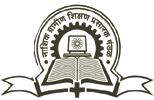
Designation: HOD
Qualification: MSC
Experience: 1 years
Specialization: Botany
Mobile: 9511862050
Email-id: ashwinimotkar9511@gmail.com
Office-Address: Brahma Valley College of Arts, Commerce and Science
About Department
Vision
1.Deliver Cutting-Edge Education : Offer a dynamic curriculum combining theoretical foundations, lab techniques, field studies, and modern tools (microscopy, molecular methods, ecological assessments) to build strong competence in plant sciences
2.Foster Innovative Research : Promote both fundamental and applied research in areas like taxonomy, plant physiology, biotechnology, ecology, and sustainable agriculture—addressing local to global environmental challenges
3.Cultivate Environmental & Ethical Stewardship : Encourage plant conservation, biodiversity awareness, sustainable resource use, and green practices among students and staff through outreach and community initiatives.
4.Develop Technical & Analytical Skills : Train students in scientific inquiry, data analysis, lab safety, and research methodologies to prepare them for careers in research, industry, conservation, or education.
5.Empower Personal & Professional Growth: Support leadership, teamwork, communication, and ethics through seminars, workshops, mentoring, and experiential learning.
Mission
“Our mission is to provide cutting-edge plant science education through a comprehensive mix of theory, laboratory techniques, field studies, and modern tools. We advance innovative research in taxonomy, physiology, biotechnology, ecology, and sustainable agriculture to address both local and global challenges. We champion environmental and ethical stewardship by promoting conservation, biodiversity awareness, sustainable resource use, and green practices through active outreach. By equipping students with strong technical and analytical skills, we prepare them for impactful careers in research, industry, conservation, and education. Finally, we support interdisciplinary collaboration and personal growth—building partnerships across academia, industry, and communities and fostering leadership, teamwork, communication, and ethical conduct.”
Objectives
Aims
No aims available.
Objectives
No objectives available.
Staff Profile
| Sr. No. | Photographs | Name | Designation | Qualification | Resume |
|---|---|---|---|---|---|
| 1 |

|
Prof. Ashwini Motkar | HOD | MSC BONTANY | View |
Courses Offered
| Sr. No. | Subject Code | Subject Name | Class | Sem |
|---|---|---|---|---|
| No courses offered data available. | ||||
Total Intake
| Sr. No. | Name | Duration | Total BA Intake |
|---|---|---|---|
| No courses available. | |||
Course / Program Outcomes (CO/PO/PSO)
CO 1. By the end of the course, students will be able to understand and classify plants into major groups (algae, fungi, lichens, bryophytes, pteridophytes, gymnosperms, and angiosperms) based on their morphological and reproductive features.
CO2: Students will be able to identify and explain the economic significance of various plant groups, recognizing their applications in industries such as food, pharmaceuticals, biofuels, textiles, and environmental sustainability.
CO3: Students will gain the ability to describe the reproductive cycles and morphological
characteristics of plants like algae, fungi, lichens, bryophytes, and others, with examples from groups such as Nostoc, Agaricus, Riccia, Azolla, Cycas, and others.
CO4: Students will understand the various applications of plant sciences in real-world scenarios such as environmental monitoring, bioremediation, medicine, and industrial processes like
biofuel production, food processing, and landscaping.
CO5. By the conclusion of the course, students will be well-equipped to pursue careers or further education in fields related to plant biology, biotechnology, agriculture, environmental science, and various industries benefiting from plant-derived
PO1: Attain thoughtful proficiency in the field of plant sciences.
PO2: Acquire the ability to perform in multidisciplinary domains.
PO3: Attain the ability to exercise intelligence of scientific knowledge for investigation and innovation and nourishment of the world.
PO4: Learn value based ethical practices and principles committed to professional ethics.
PO5: Incorporate 21st century skill oriented self-directed and life-long learning.
PO6: Obtain ability to inculcate the knowledge of plant science in diverse contexts with global perspective.
PO7: Attain maturity to harness the destiny and responds to one’s calling.
PSO1: Recall the diversity, classification, evolution and developmental changes among the plants with reference to lower and higher plant groups and create a knowledge base in understanding the basis of plant diversity, economic values and taxonomy of plants.
PSO2: Understand the advanced concepts of Genetics, Cell biology and Plant Biotechnology of plants and its implementation for the improvement of crop productivity.
PSO3: Acquire and utilize the skills of post-harvest, flower design, fruit processing and dehydration techniques, organic farming and various plant processing technologies for developing the economy to the growing world.
PSO4: Know about the importance of Medicinal plants and its useful parts, economically important plants in our daily life and also about the traditional medicines and herbs, and its relevance in modern times.
PSO5: Inculcate the methodology followed in plant breeding, pharmacognosy, herbal drug technology, plant protection, propagation and improvement.
PSO6: Adapt methods of scientific research in plant improvement program and create entrepreneurships, employment to the society.
PSO7: Analyze the impact of scientific and technological advances on the environment and society and understand the importance of biodiversity conservation, green cover development, carbon sequestration and utilize the knowledge for sustainable development.
PSO8: Explore the knowledge of biotic and abiotic stress tolerance, plant microbe interaction and Integrate pest management for making the revolution in the agriculture.
PSO9: Enrich the ability of critical thinking, development of scientific attitude, handling of problems and generating solutions, improve practical skills, and enhance communication skill.
PSO10: Apply the fruitful knowledge of plant sciences and plant resources for the sustainable development, betterment of society and environment by recognizing the ethical values.
PSO11: Become competent enough in various analytical and 21st century technical skills related to plant sciences for their exploration.
PSO12: Exhibit the potential to effectively accomplish tasks independently and as a member or leader in diverse teams, and in multidisciplinary settings.
PSO13: Employ critical thinking based problem solving and practical skills pertaining to botanical techniques and computational knowledge and apply strategies for environmental conservation.
PSO14: Demonstrate knowledge and scientific understanding to identify research problems, design experiments, use appropriate methodologies, analyze and interpret data and provide solutions. Exhibit organizational skills and the ability to manage time and resources.

